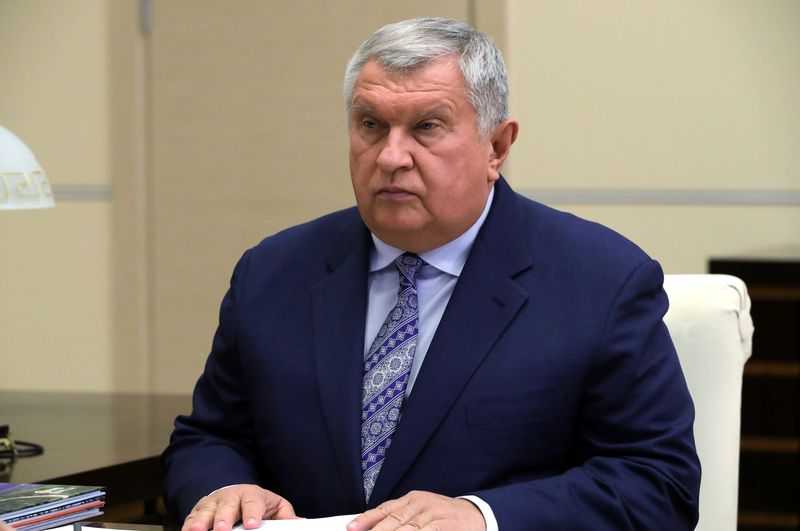By Vladimir Soldatkin
MOSCOW (Reuters) - Igor Sechin, the powerful head of energy giant Rosneft, said on Thursday that Russian pipeline oil exports to China are safe as they avoid the troubled routes of the Middle East which major powers fear is on the brink of a regional war.
"In the context of the events currently taking place in the Middle East, it is important to note the safety of Russian oil supplies to China," Sechin told a Sino-Russian energy business forum in China, Interfax news agency reported.
Israel, which has become a major gas exporter in recent years, has shut down several major energy sites since Hamas militants attacked southern Israel on Oct. 7, sparking a wider conflict in the Gaza Strip.
Russia is forging close political and business ties with China amid the wider fallout with the West over a conflict in Ukraine. President Vladimir Putin met Chinese leader and "dear friend" Xi Jinping this week.
Sechin also said that Russia has overtaken Saudi Arabia as the main supplier of oil to China, delivering 75 million tonnes of oil so far this year, up 25% from last year's volumes.
Russian oil exports to China, the world's second-largest consumer of oil after the United States, increased to almost 2 million barrels per day this year.
Rosneft, which accounts for around 40% of Russian oil output, is Russia's largest supplier of oil to China.
Moscow's main route to China is a pipeline from East Siberia to the Pacific Ocean and the port of Kozmino.
"This oil is supplied via the ESPO oil pipeline, which in the current situation seems to us to be a much more reliable transportation channel compared to tanker transportation through the Strait of Hormuz or the Suez Canal due to the growing geopolitical instability of these regions," Sechin said.
Global oil prices have spiked in recent week to over $90 per barrel on concerns about disruptions to global supplies after Iran called for an oil embargo on Israel over the conflict in Gaza. Prices eased on Thursday as fears of an embargo subsided.
Israel imports about 250,000 bpd of oil, mainly from Kazakhstan, Azerbaijan, Iraq and African countries, according to Citi analysts in a note.

Sechin also said that it was important to increase the share of the rouble and yuan both in mutual payments between Russia and China and in settlements with third parties.
"Of course, this requires the support of the Bank of Russia and the People's Bank of China, closer interbank cooperation and its practical focus on the implementation of specific projects," hew said according to Interfax.